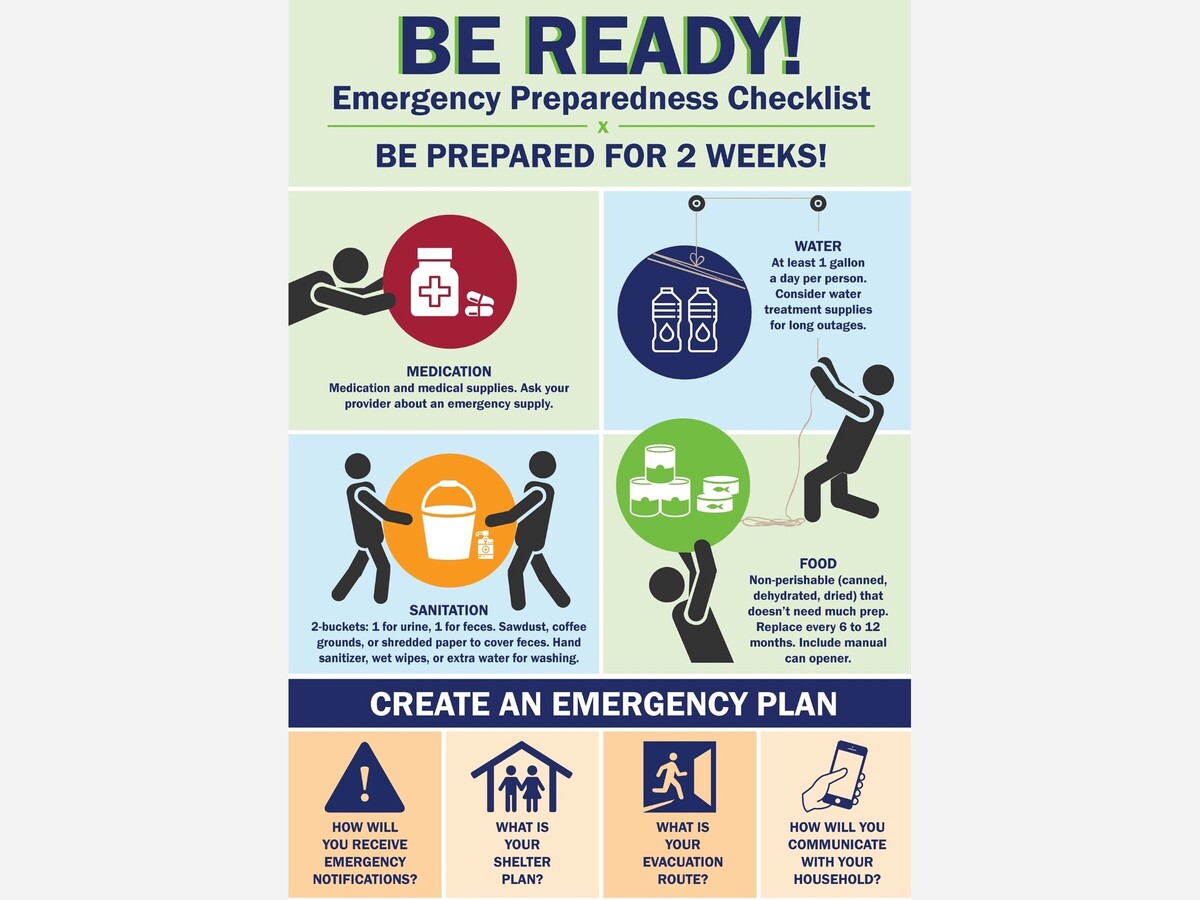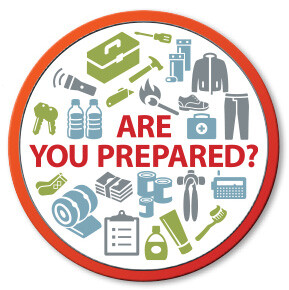Image


Imagine this: a sudden power outage, a harsh storm, or an unexpected event disrupts your daily routine. Access to essential utilities like water and electricity might be limited for a while. While these scenarios might seem unlikely, being prepared for them can bring peace of mind and ensure your well-being during such times.

This article outlines the importance of having a food and water emergency plan and provides practical tips to prepare your home or apartment for unforeseen situations.
Why Prepare?
Disasters can strike anytime, anywhere. Having a well-stocked emergency kit at home can significantly impact your ability to cope during challenging situations. Food and water are crucial for survival, and ensuring you have a sufficient supply readily available can make a real difference.
Building Your Food Stash:
Non-perishable essentials: Focus on canned goods, dried fruits and vegetables, granola bars, and protein bars. Choose items with a long shelf life and that require minimal preparation, especially if cooking facilities are unavailable.
Variety is key: Include a mix of food items to cater to different dietary needs and preferences within your household.
Consider special needs: If you have infants, remember to stock up on formula, baby food, and bottled water.
Don't forget the extras: Include essentials like salt, pepper, and spices to add flavor to your meals during an emergency.
Water: The Essential Lifeline
Storage is key: Aim to store at least one gallon of water per person per day for at least three days. This includes water for drinking, cooking, and sanitation.
Rotate your stock: Regularly check the expiration date on your bottled water and replace it as needed.
Alternative options: Consider investing in water purification tablets or a water filter in case your primary water source becomes unavailable.
Additional Tips:
Create an inventory: Make a list of your food and water supplies and update it regularly. This helps you keep track of expiration dates and ensures you have a clear picture of your stock.
Store wisely: Choose cool, dry, and dark locations for storing your food and water. Avoid basements or attics, which can experience extreme temperatures.
Think beyond the basics: Consider having a manual can opener, non-electric cooking options like a camp stove, and disposable utensils in your emergency kit.
Remember, preparing for emergencies is an ongoing process. Regularly review and update your food and water supplies to ensure you are always ready to face unexpected challenges. By taking these steps, you can create a sense of security and well-being for yourself and your loved ones during difficult times.
It’s getting weird across the globe, and you never know what you have today that may not be easily available tomorrow.
PREPARE NOW!